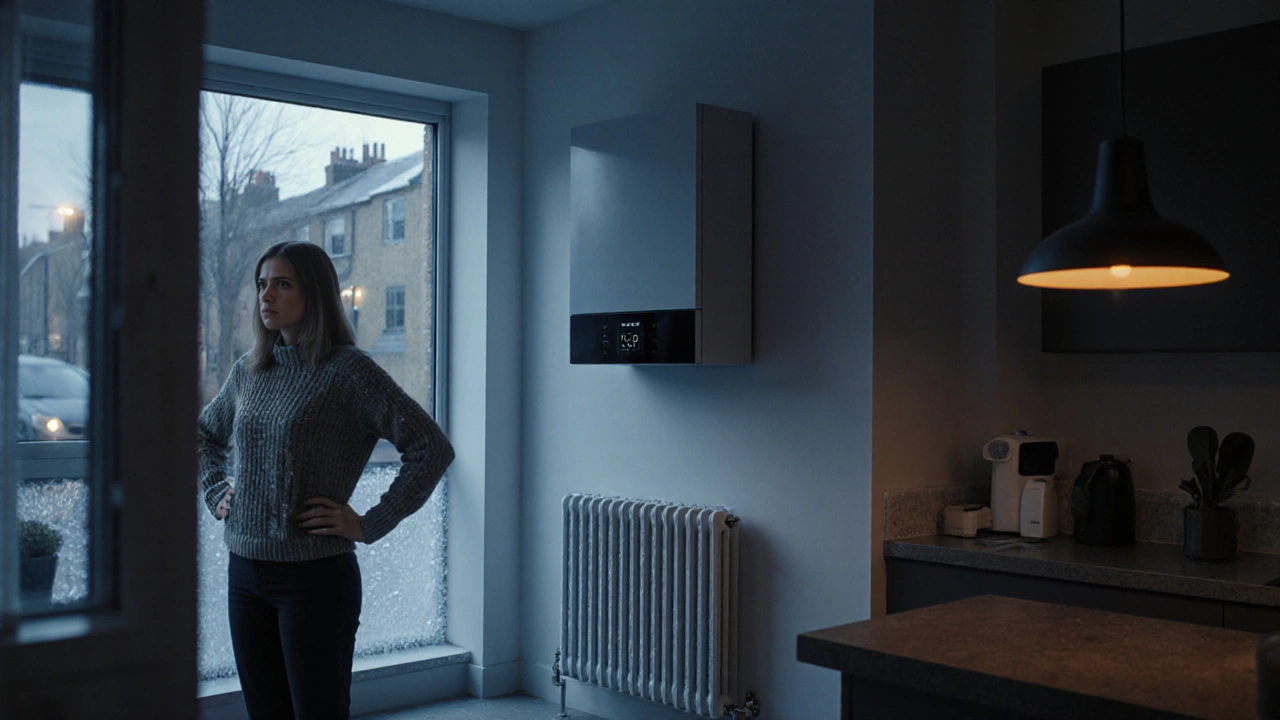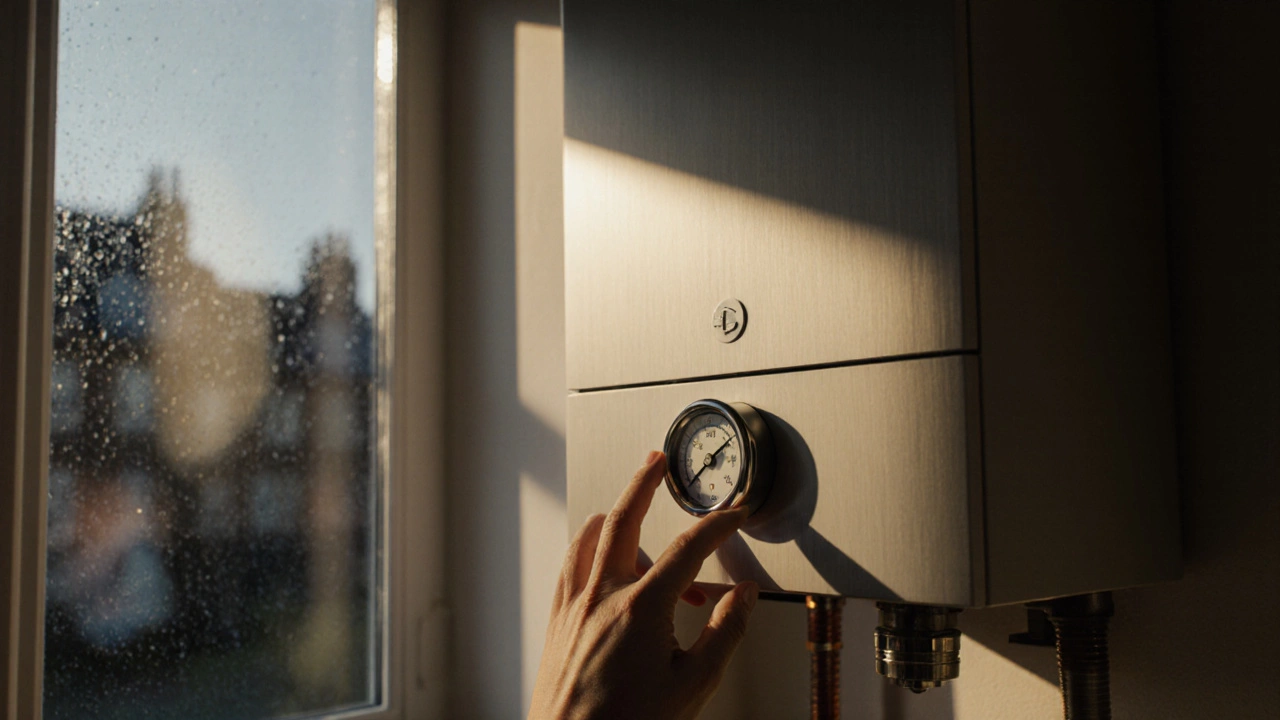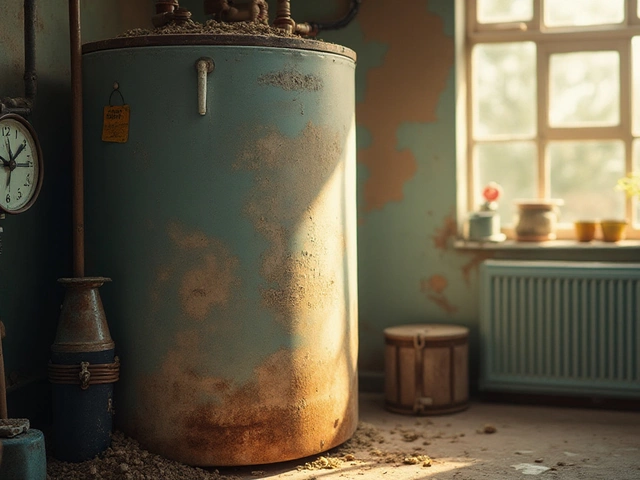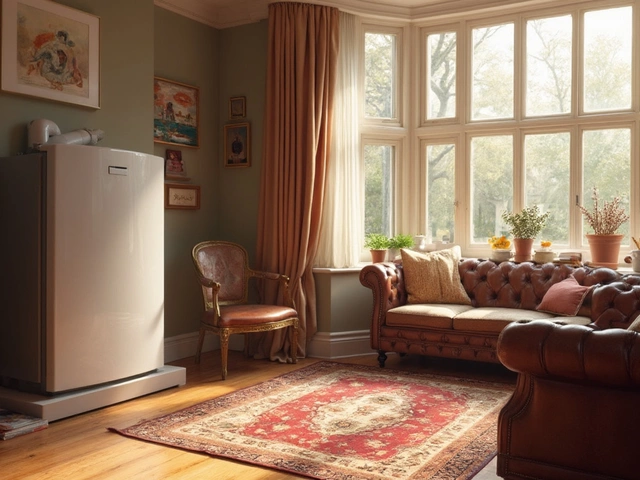When working with boiler troubleshooting, the systematic process of diagnosing and fixing problems in residential heating boilers. Also known as boiler diagnostics, it helps you avoid cold showers and soaring energy bills. Boiler, a sealed vessel that heats water for central heating and hot‑water supply often shares components with a water heater, an appliance that provides domestic hot water, usually with a built‑in thermostat and safety switch. In many homes a heat pump, a system that extracts ambient heat to warm water or air, can work alongside a boiler to boost efficiency. boiler troubleshooting starts with understanding how these pieces interact.
Why does boiler troubleshooting matter? A faulty boiler can leak carbon monoxide, trip safety switches, or leave you shivering on a chilly night. The most common warning signs include no hot water, strange noises, leaking pipes, and an unexpected rise in the heating bill. Each clue points to a specific subsystem—like the pressure valve, ignition module, or circulator pump. Recognizing the pattern lets you narrow down the cause quickly, which is the essence of a proper diagnostic approach. This process directly links to safety, energy savings, and extending the lifespan of both the boiler and any connected water‑heating devices.
Effective troubleshooting follows a simple three‑step loop: identify the symptom, isolate the component, and test the fix. You’ll need a few basic tools—a pressure gauge, multimeter, screwdriver set, and a user manual for the specific model. Start by checking the pressure gauge; low pressure often triggers the boiler’s shutdown mode. Next, inspect the thermostat settings and verify that the pilot light (or electronic igniter) is functioning. Finally, run a short test cycle while monitoring for error codes on the control panel. This systematic method not only solves the immediate problem but also builds confidence for future issues.
Many homeowners mistake a water‑heater reset for a boiler fault. The high‑limit switch on a water heater trips when the temperature exceeds safe levels, and the reset button restores operation. However, repeated resets usually indicate a deeper issue—such as a failing heating element or sediment buildup—that can also affect a boiler’s heat‑exchange efficiency. By understanding the reset process for a water heater, you gain insight into how temperature controls work across both appliances, making it easier to spot the root cause when the two systems share a common hot‑water loop.
Heat pumps add another layer to the troubleshooting puzzle. When a heat pump isn’t delivering warm air, the boiler may over‑compensate, leading to higher pressure and frequent shutdowns. Checking the outdoor unit for ice buildup, verifying the refrigerant level, and ensuring the fan is operating correctly can prevent unnecessary strain on the boiler. In short, a well‑maintained heat pump reduces the workload on the boiler, which in turn lowers the likelihood of boiler‑related failures.
Deciding between DIY fixes and professional service hinges on the complexity of the issue and safety considerations. Simple tasks—like resetting a water heater, bleeding radiators, or cleaning a boiler filter—are safe for most homeowners. Anything involving gas lines, internal combustion components, or electrical rewiring should be left to a certified engineer. Professional service also includes a thorough safety inspection, which can catch hidden faults before they become costly emergencies.
Below are the top problems you’ll encounter and a brief action plan for each. Leaking pressure relief valve: turn off the power, relieve system pressure, and replace the valve if the seat is corroded. No hot water: check the diverter valve position, verify the thermostat isn’t set to “off,” and inspect the flow sensor. Strange noises: air trapped in the system causes banging; bleed radiators and purge the pump. High energy bills: a dirty heat exchanger or a malfunctioning flame sensor can force the boiler to work harder; clean the exchanger and test the sensor with a multimeter. Each fix follows the same identify‑isolate‑test loop described earlier, keeping the process straightforward.
Armed with this overview, you’re ready to dive into the detailed articles below. They cover everything from safe water‑heater resets to heat‑pump integration, giving you the knowledge to troubleshoot confidently or know when to call a qualified technician.

A practical UK guide that tells you exactly who to call when your boiler fails, how to verify a qualified engineer, and what steps to take before and after the repair.

Step‑by‑step guide to diagnose common boiler problems, covering pressure, thermostat, fault codes, leaks, and when to call a professional.

Neglecting to flush your water heater can lead to a host of issues, from inefficiency to full-blown malfunctions. Sediment buildup can decrease heating efficiency and even cause damage over time. This article explores what happens if you never flush your water heater, why regular maintenance is crucial, and how you can perform these tasks. Dive into practical advice and tips for maintaining a healthy water heating system.

Deciding whether to repair or replace a dishwasher can be challenging. This article explores factors like cost, lifespan, and environmental impact to help homeowners make an informed decision. Learn about common dishwasher issues and repair tips to prolong its life. Evaluate professional repair services versus DIY fixes and consider when it's time to let go and invest in a new appliance.

Struggling with a kitchen extractor fan that's lost its power? This guide explains how to find and fix common blockages that cause bad smells and poor airflow. Learn step-by-step how to safely clean your fan and make it work like new, plus get handy maintenance tips to stop future clogs. We break down the process so you don't need tools or special skills. Get your kitchen back to normal without calling in an expert.

Considering replacing your electric oven on your own? Before you jump into action, it's crucial to understand the steps involved and the potential challenges you might face. From ensuring safety precautions to understanding the basic wiring, this article delves into what you need to know. We'll discuss not only the tools and skills required but also when it's better to call in a professional. By the end, you'll have a clearer picture of whether you should tackle this task yourself or seek expert help.

Curious about how much a new boiler might set you back? This article breaks down the costs involved, from purchasing the unit to installation fees. Understand the factors that influence pricing and learn practical tips to get the most value from your investment. Discover essential maintenance advice and the importance of proper sizing and efficiency ratings. Equip yourself with knowledge before making a decision about your home's heating system.